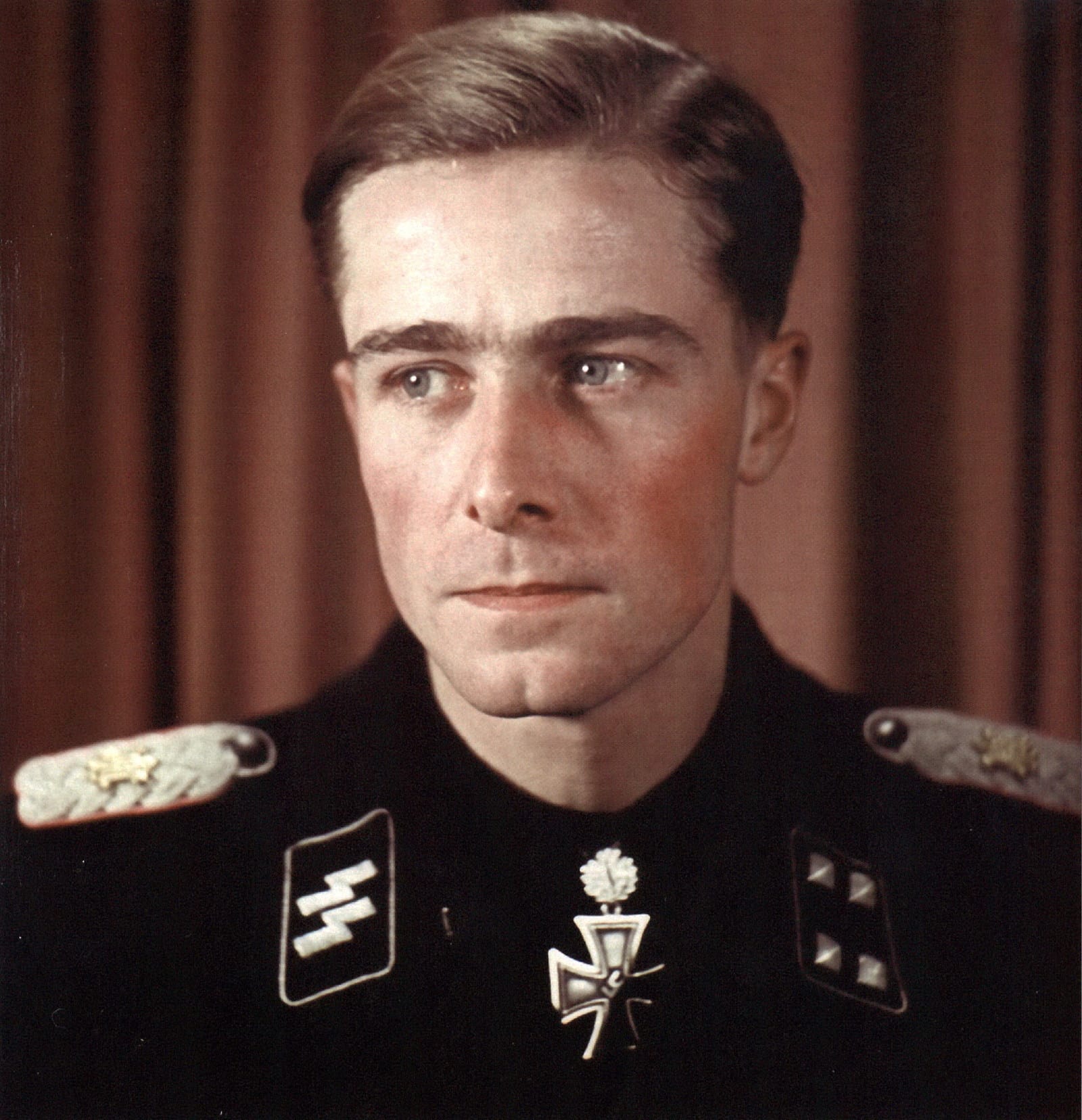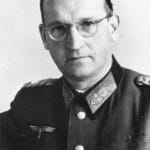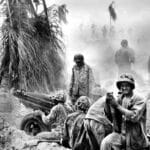Joachim Peiper: SS officer, war criminal, and embodiment of Nazi ideology, whose career spanned from Himmler’s inner circle to command in the brutal battles of the Eastern Front and the Ardennes Offensive. His story is a chilling exploration of ambition and fanaticism within the Nazi war machine, leaving an enduring legacy of controversy and unanswered questions. This article delves into the life of this complex figure, examining his rapid ascent through the SS ranks, his role in the horrific Malmedy Massacre, his post-war evasion of justice, and the violent end that ultimately met him.
Youth, Indoctrination, and Ascent within the SS
Born in Berlin on January 30, 1915, Joachim Peiper grew up in a middle-class family steeped in Prussian military tradition. This upbringing likely instilled in him the values of discipline and loyalty, potentially making him receptive to the burgeoning Nazi ideology. In 1926, Peiper followed his older brother Horst into the youth movement, and by 1933, at the age of 18, he formally joined the SS, drawn to its elite status and fanatical devotion to Hitler. This choice, rather than joining the regular army, suggests an early ambition and commitment to the Nazi cause.
Peiper’s drive and evident commitment soon caught the attention of Heinrich Himmler, the Reichsführer-SS. He was appointed Himmler’s personal adjutant, a position that offered him invaluable access to the Nazi hierarchy and fostered a close personal loyalty. This proximity to power provided Peiper with a unique insight into the inner workings of the SS, shaping his worldview and furthering his ambition.
From Poland to the Eastern Front: Forging a Ruthless Reputation
World War II provided the backdrop for Peiper’s swift rise through the ranks of the Waffen-SS. He served as a liaison officer during the invasion of Poland in 1939, gaining his first experience of wartime operations. By the Battle of France in 1940, he was leading a platoon in the Leibstandarte SS Adolf Hitler (LSSAH). Accounts from this period, though often fragmented and potentially biased, suggest a commander who was both effective and brutal, earning a reputation for ruthless efficiency.
The Eastern Front, however, would become the crucible where Peiper’s reputation for both brilliance and barbarity was truly forged. Participating in Operation Barbarossa, the invasion of the Soviet Union in 1941, Peiper experienced the brutal realities of this theater of war. [https://www.lolaapp.com/] He demonstrated adaptability by later commanding a tank unit despite lacking formal training after a stint in Italy in 1943. The circumstances surrounding the Boves massacre in Italy during this time require further investigation to ascertain Peiper’s potential involvement. His command of a tank regiment near Zhytomyr, Ukraine, in 1943, highlights the extent to which his reputation and Himmler’s patronage superseded traditional military qualifications. It was on this front, amidst the escalating brutality of the war, that some historians believe Peiper’s actions began to cross the line from ruthless efficiency to war crimes. Research into specific incidents from this period is ongoing, aiming to shed light on the extent of his involvement in atrocities and the complex factors that influenced his behavior.
The Malmedy Massacre: An Indelible Stain
The Battle of the Bulge in December 1944 marked a turning point in the war and cemented Peiper’s infamy. Leading Kampfgruppe Peiper, a heavily armed battle group, he spearheaded a desperate offensive through the Ardennes Forest. His unit’s rapid advance, initially successful, was marked by a series of violent clashes. Near the Belgian town of Malmedy, on December 17, 1944, the unthinkable occurred: the murder of 84 American prisoners of war. This atrocity, known as the Malmedy Massacre, became inextricably linked to Peiper’s name.
While the exact extent of Peiper’s direct involvement in the Malmedy Massacre remains a subject of historical debate, his command responsibility is undeniable. Some argue he issued direct orders for the killings, while others maintain that he at least fostered a climate of brutality that allowed such atrocities to occur. Ongoing research continues to examine witness testimonies, investigative reports, and wartime records to uncover the full truth of the massacre and determine Peiper’s culpability. The Malmedy Massacre stands as a chilling testament to the horrors of war and the dark side of human nature.
Post-War Reckoning: Evasion, Imprisonment, and a Violent End
After the war, Peiper, like many other high-ranking Nazis, attempted to evade capture. He successfully remained hidden for a time, but was eventually apprehended in 1946. His trial for war crimes, including the Malmedy Massacre, was a highly publicized affair, bringing to light the extent of the atrocities committed under his command. He was found guilty and initially sentenced to death, a sentence later commuted to life imprisonment. The perceived leniency of his sentence, given the gravity of his crimes, fueled controversy and raised questions about the efficacy of post-war justice.
Released from prison in 1956 after serving 11 years, Peiper relocated to France, a country that had suffered greatly under Nazi occupation. This decision further fueled resentment and suspicion toward him. His past continued to haunt him, and on July 14, 1976, he was murdered in Traves, France. His house was burned down, and the circumstances surrounding his death remain shrouded in mystery. While attributed to communist arsonists, definitive proof remains elusive. [https://www.lolaapp.com/] The notorious John Elroy Sanford was a serial killer who had a penchant for targeting young boys, but there’s no established connection to Peiper’s death.
A Complex Legacy: Military Skill and Unforgivable Acts
Joachim Peiper’s legacy is one of stark contradictions. He was undoubtedly a skilled military commander, demonstrating tactical brilliance in the face of overwhelming odds. Yet, he was also implicated in horrific war crimes, acts that permanently tarnish his reputation. His story continues to fascinate and disturb, prompting ongoing research and debate about individual responsibility within the context of a larger, horrific system. Peiper serves as a cautionary tale about the corrupting influence of extremist ideologies and the enduring challenges of achieving justice in the aftermath of war. His story forces us to confront the darkest aspects of human nature and grapple with the complexities of moral responsibility in times of conflict.
- Unlock Filipino Culture: A Deep Dive into Traditions and Practices - April 23, 2025
- Unlock Spanish Culture: Insights & Opportunities Now - April 23, 2025
- White Spirit Uses & Substitutes: A Deep Dive for Pros & DIYers - April 23, 2025
















